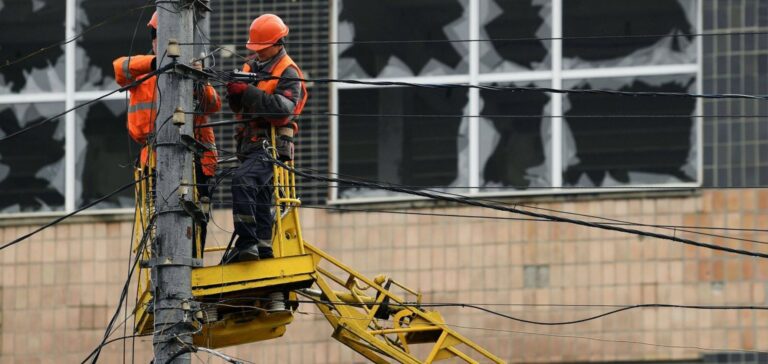The World Bank (WB) announced on Wednesday that it would grant 200 million dollars to Ukraine to allow the country at war to restore its electricity network, particularly targeted by Russian strikes during the winter. The new money could be accompanied by another $300 million in donations from “partners and other contributors as the project is expanded,” the bank added in its statement.
The money will allow Ukraine to carry out emergency work to restore the most critical infrastructure and to install heating equipment where necessary. “Ukraine’s energy infrastructure suffered $11 billion in damage in 2022 and is one of the sectors in which Ukraine needs the most urgent repairs,” said the World Bank’s managing director of operations, Anna Bjerde, quoted in the statement. The Russian campaign of destruction specifically targeting the electricity network during the fall and winter has knocked out more than 50% of the country’s energy infrastructure, the institution said, especially in the east of the country, where the fighting is most violent.
This new package brings the total amount of financing provided by the bank to Ukraine since the beginning of the conflict to nearly $23 billion, either in the form of loans or grants. So far $20 billion has been disbursed to the war-torn country. A meeting of Ukraine’s main supporters is to be held on Wednesday at the headquarters of the International Monetary Fund (IMF), during the Fund’s spring meetings, during which Ukrainian President Volodymyr Zelensky and Prime Minister Denys Chmyhal are to speak. The IMF, for its part, reached an agreement with the Ukrainian government on March 21, a $15.6 billion aid package. But a March 22 study by the World Bank, the UN, the European Union and the Ukrainian government estimated that $411 billion is needed for recovery and reconstruction, a sum that will grow as the conflict continues.






















